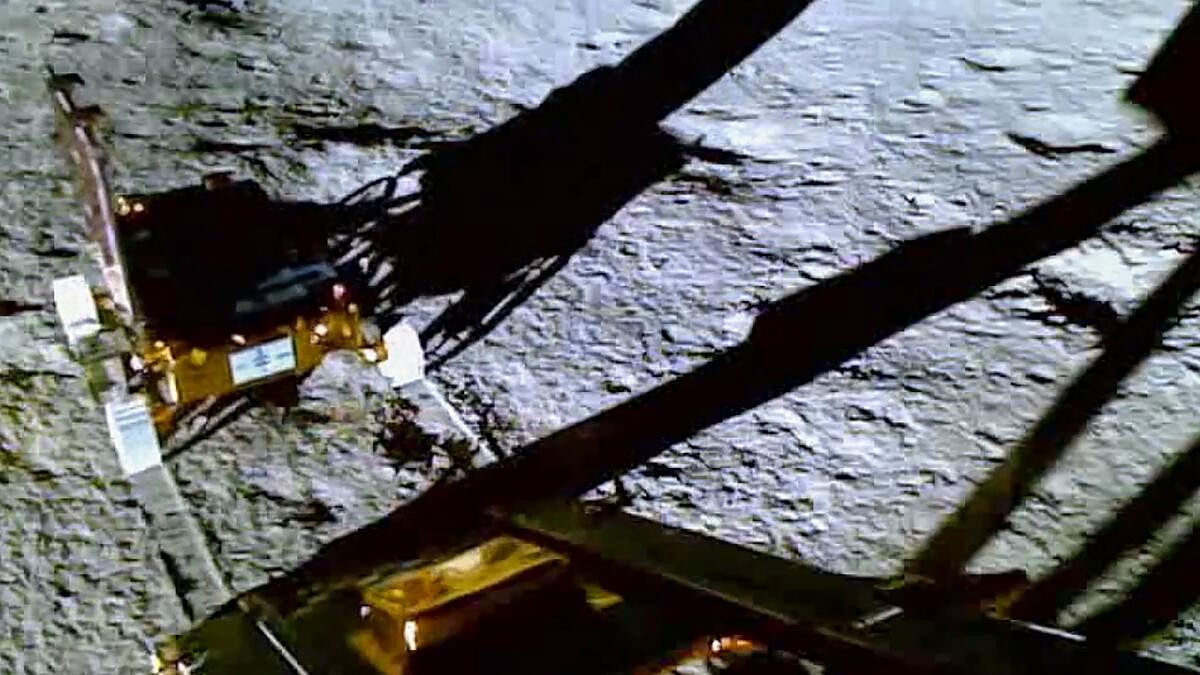
ISRO's Chandrayaan-3 lunar mission.
Credit: PTI Photo
New Delhi: The Union Cabinet on Wednesday further liberalised the space sector by amending the Foreign Direct Investment norms, permitting an increased flow of foreign capital in areas related to the development and launch of satellites, and creating the ground infrastructure for the same.
As per the amended policy, 100 per cent of FDI under automatic route is permitted for making of components and systems/ sub-systems for satellites, ground segment and user segment, while 74 per cent FDI will be allowed for satellites-manufacturing and operation, satellite data products and ground segment and user segment.
For the development of launch vehicles and associated systems/subsystems, and creation of spaceports, the FDI limit under the automatic route has been fixed at 49 per cent, the Union Cabinet said in a press note on the entry route for FDI in the space sector.
The amendments, according to the government, will increase private sector participation, which in turn will generate employment, enable modern technology absorption and make the sector self-reliant. It is expected to integrate Indian companies into global value chains.
The amendments will also allow private companies to set up manufacturing facilities in the country.
Following the liberalisation of the space sector, India eyes a $40 billion space economy by 2040. The number of start-ups in the space sector has gone up to more than 150 with some of them developing rockets and satellites with some hand-holding by the Indian Space Research Organisation.
The changes in the FDI norms come a year after the government notified a new space policy in 2023 in an effort to increase private participation in the space sector benefiting the economy.
“The Indian Space Policy 2023 aims to augment space capabilities; develop a flourishing commercial presence in space; use space as a driver of technology development and derived benefits in allied areas; pursue international relations and create an ecosystem for effective implementation of space applications,” says the statement.
Going further, the Union Cabinet chaired by Prime Minister Narendra Modi approved the amendment in FDI norms, dividing the satellite sub-sector into three different activities with defined limits for foreign investment.
“The non-governmental entities have developed capabilities and expertise in the areas of satellites and launch vehicles. With increased investment, they would be able to achieve sophistication of products, global scale of operations and enhanced share of global space economy,” adds the cabinet statement.
"The new FDI norms will give India access to the latest technology advances and much-needed funds not only from the country but from international investors too. At present, the space sector in India accounts for little over about two per cent of the global space economy and this move will help the country to gain a much larger pie in the global market," commented Lt Gen AK Bhatt (Retd), director general, Indian Space Association.
